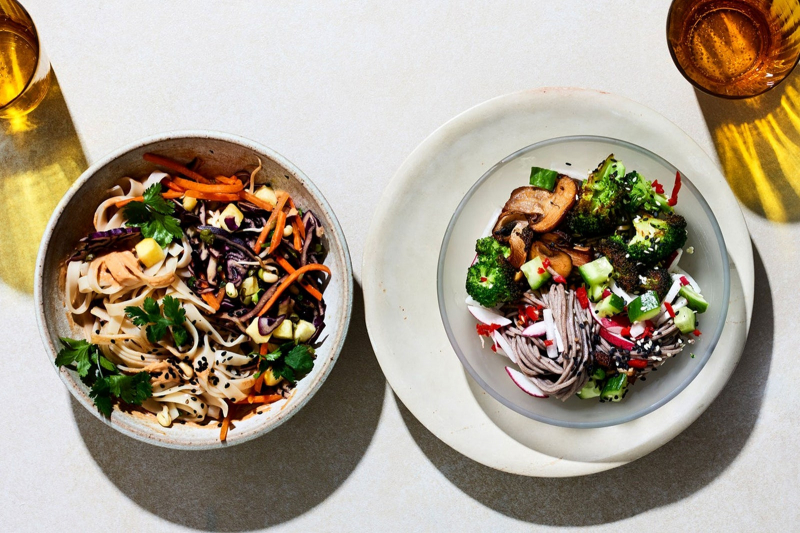
I am opposed to dinner. Not the eating part, of course. The eating part is the one thing whoever invented dinner, in ancient times, got right. The rest of it? Wrong, very wrong. The part with the chopping, and the dishes – wrong. The part with knowing what you need to get to make things, and what to make in the first place – wrong. And, of course, the very wrongest part of dinner is the time. Dinner happens at the end of the day, when you’ve already dealt with breakfast and lunch, worked, filled out papers, fielded phone calls, and driven each child you have four different places. Dinner doesn’t even start until after all that, which: How? You are tired. You have not even been in your house. How should the dinner be made?
I don’t blame the ancient people, who had not yet discovered the finicky rhythms of student orchestra or the fact that the good gymnastics gym is always two towns over. They perhaps enjoyed beginning the process of dinner at 11am – the building of the fire, the bubbling of the mixture. The cauldron was their cable news! Ingredients were foraged or dropped off by britch-wearing travellers – correct? I get most of my ancient-people knowledge from the children’s book Stone Soup.
But today, dinner isn’t working. I do not overlook the privilege of having food to eat; it only makes me more embarrassed to admit that, in my house, dinner has long seemed like an insurmountable stress. A no-win game. You start out behind the clock, by default; historically, at 6pm., my husband and I are both still working. If we’re not working, we’re sitting at a lesson or practice, then driving back, hoping against hope that the other parent has cooked. This has never happened. Which doesn’t stop me from becoming irrationally annoyed when I find my hopes dashed. I’ve spent many a weeknight cooking passive-aggressively, which involves bitchy knife work and saying things like: “Oh, no. I’ve got this. You sit.” All the while, our children roam the house, shoving handfuls of chips into their mouths, a display that economically communicates three separate messages: You have failed to feed us on time. When you try to feed us, we will no longer be hungry. We prefer these chips to anything you cook, anyway.
Over time, I have made unsuccessful attempts to troubleshoot dinner. I’ve tried meal prepping, doing pick-up grocery orders, attempting quick recipes, and shouting, “You know what? You’re just gonna end up eating PB&J, so let’s quit pretending and skip to that!” But PB&J dinners, served at an interval exceeding once a year (which you can pull off as being a fun zany thing), are depressing. Quick recipes? I make them slow. Pick-up grocery orders, while convenient, give me spending guilt with all the upcharges. And meal prepping – man, you know what no one says enough, when it comes to meal prepping? It’s making dinner all day. It is hell on earth, not a hack. That reminds me: I tried hacks. All of them. But unlike the moms who can shave a Dairy Queen cake into the shape of a narwhal, I’m just not good with hacks. My idea of a hack is: carry trash around in one hand while cleaning up with the other, as if an extra trip to the trash can will take minutes off my life.
Then, one night, in the midst of some truly prize bitchy knife work, I had a thought. Honestly, a vision.
I turned to my husband. He was standing in the kitchen, doing nothing. He had asked what he could do to help, and I had told him nothing, which trapped him in the knowing husband’s purgatory – he had nothing to do, but he knew better than to go and sit on the couch. “Here’s what we’re going to do,” I said. “Next week, I’m going to plan all our dinners, grocery shop, and cook. You do the dishes. The next week, we’ll switch.” In other words: next week, I’ll think about dinner. The week after, I won’t. At all.
We got excited. We bought a dry-erase board for the inside of our cabinet. In two weeks, when I opened that cabinet and saw dinners plotted out for the week, I thought, Mmm, peanut noodles. Oh, sheet pan paneer, that sounds interesting. And then I closed the cabinet. And I didn’t think about what we were eating again until I sat down to eat it.
We are now two months into this arrangement, and it has changed my life. On my “off weeks”, I wake up with a phantom-limb feeling of missing stress. Honestly, I don’t even feel stressed on my “on weeks”, anymore. I always knew that dinner was a daily source of anxiety; what I didn’t realise was that so much of the dread came from feeling like I’d never get a break. It would never end, and at the same time, I would never be doing it quite right. (Love how all those family-dinner studies are like, “Hey, no pressure, but this is the key to your kids’ grades, mental health, and long-term risk of obesity!”)
You can’t enjoy something you never, ever get a break from. There are days off from work and school. Dinners off have the same effect. Now, for two weeks each month, I scan my NYT Cooking recipes. I think, That looks fun! I set my list. I shop. I cook all week. When I find myself feeling lethargic, in any of these duties, I remind myself that next week they will not be mine. And then I remind myself: plus, you’re not doing the dishes. The mental peace of knowing what I have to do and the extent to which I have to do it – instead of engaging in a daily regimen of flailing, blame and magical thinking – has changed my life and mood around dinner. When I walk around the supermarket now, I give everyone I see a little smile. The little smile looks just like whose? That’s right, the woman from Stone Soup. Turns out we’re not so different. She spread the labour out, so nobody got pressed.

The Top 30 Best Meal Delivery Services In The UK For 2024Gallery29 PhotosView Gallery



